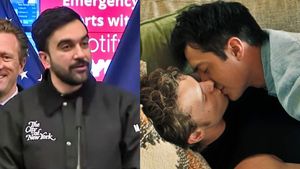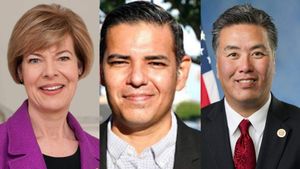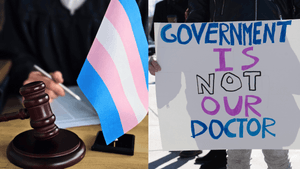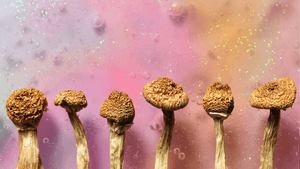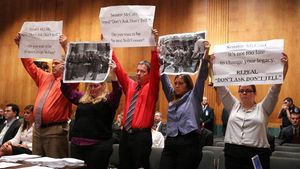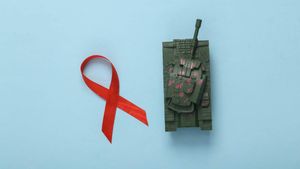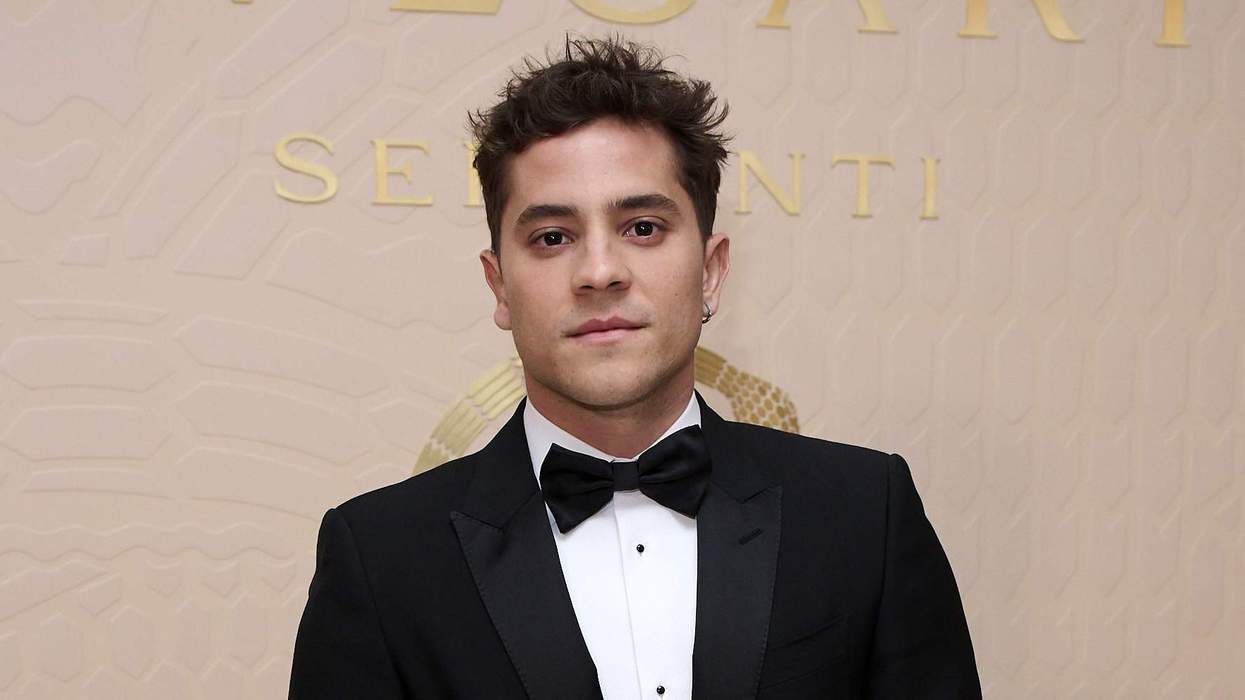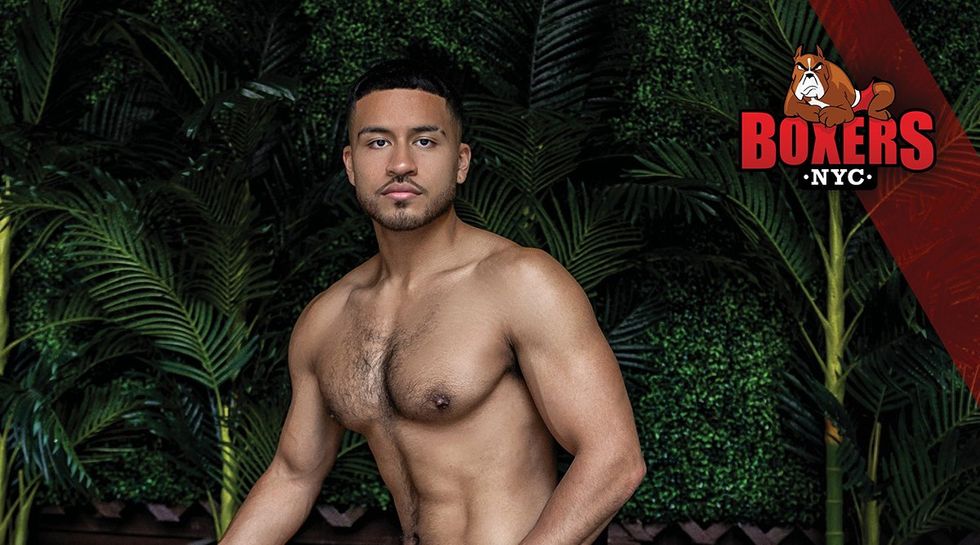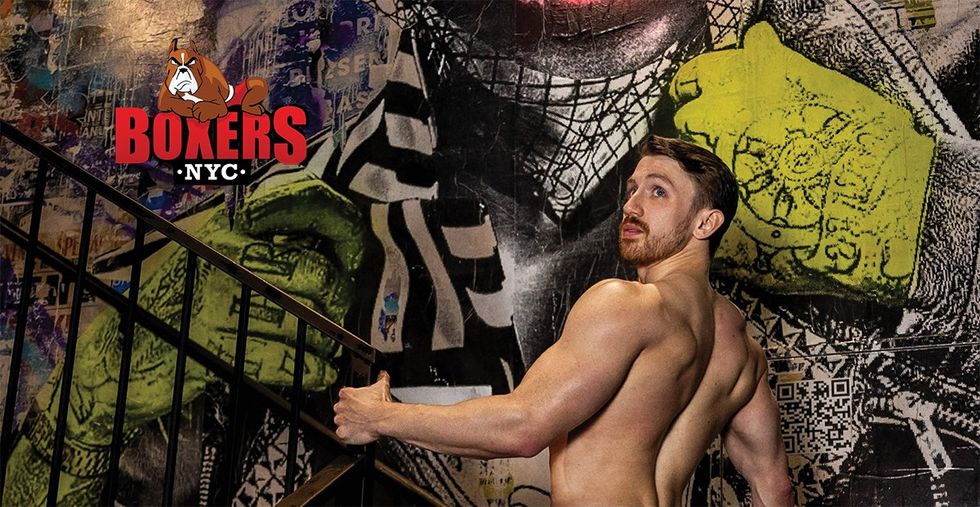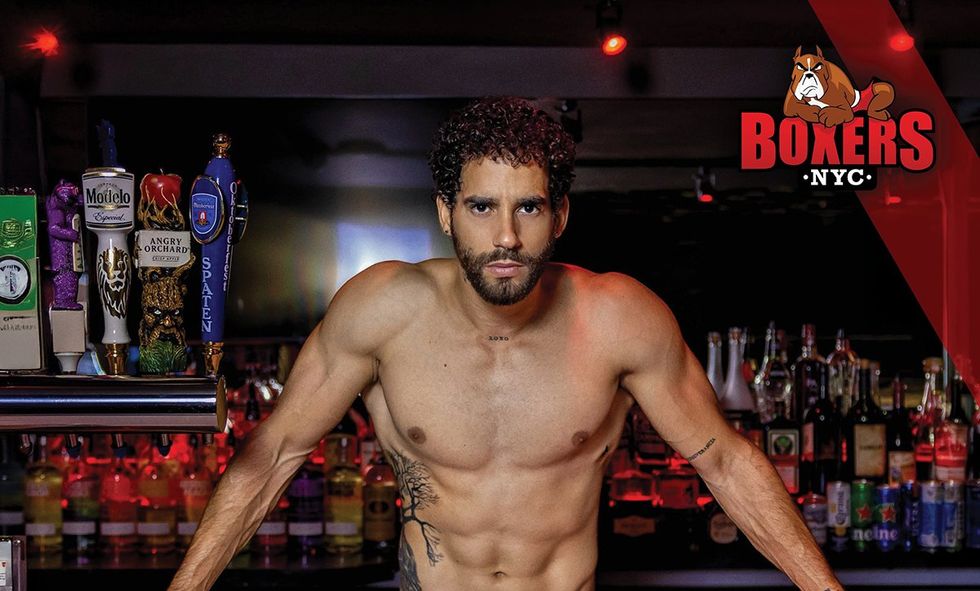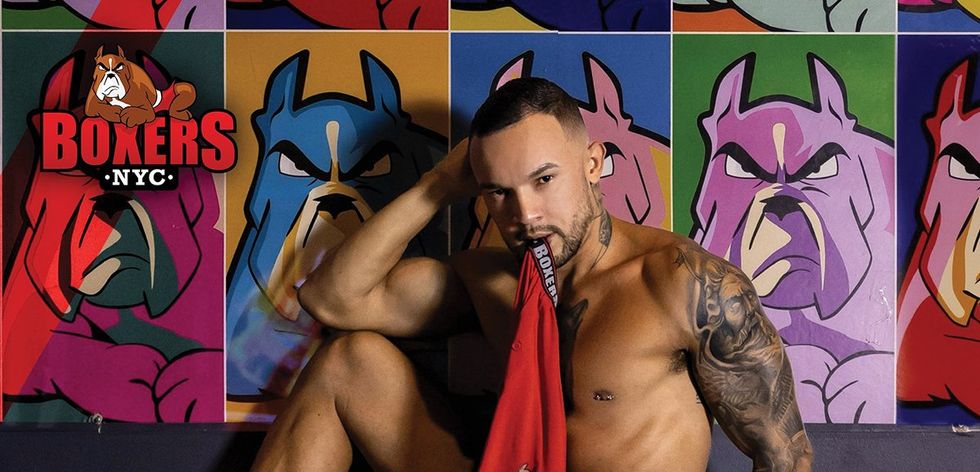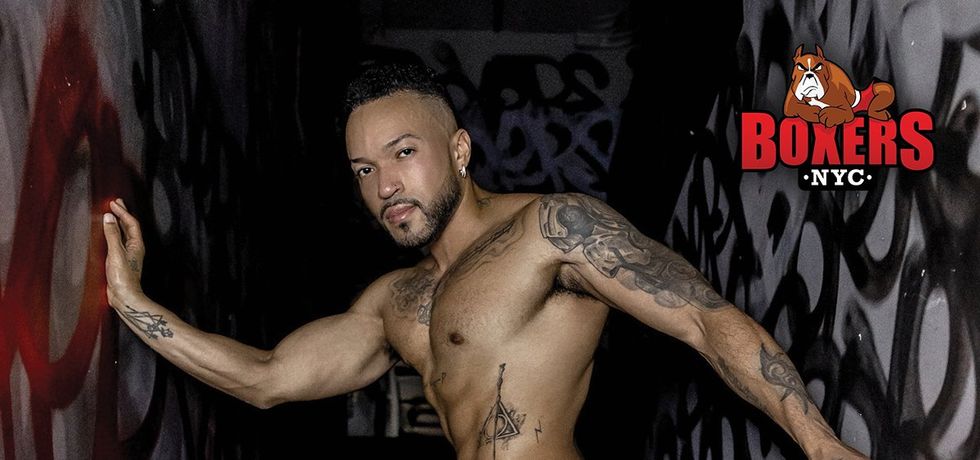Queer people do not recieve the quality of care they should in healthcare settings, but a new, recently-launched campaign called #WeNeedAButton is hoping to change that. And they’re doing it in the cheekiest way possible—through "belifes" (butt selfies). We spoke to #WeNeedAButton ambassador Zachary Zane (who used to contribute to PRIDE for years!) about how the queer sexual health campaign plans to put the responsibility on doctors to know how to properly treat, care for, and interact with LGBTQ patients.
PRIDE: So tell us about this new queer, sexual health campaign you’re the ambassador for?
Zachary Zane: Of course! So I’m working with WaxOh!, which is an online, sex-positive magazine, on a campaign called #WeNeedAButton. It's a call to major patient matching sites, like ZocDoc, to include a button, or filter, really, that lets queer people know that a provider is queer-friendly and up to speed on issues like PrEP, PEP, anal pap smears, hormone replacement therapy, and all the other specific health needs required to properly treat LGBTQ folks.
It's also a call to doctors to educate themselves on how to better serve our community. Because really, the responsibility shouldn’t be on queer folks to find a doctor that knows how to properly treat and deal with queer health issues. For God’s sake, it’s 2019! It should be the doctor’s job. I mean, literally, isn’t that what their job is?
And instead of signing a petition, we’re asking everyone who is with us—both members of the queer community and allies—to post a "belfie," or butt selfie in solidarity, using the hashtag #WeNeedAButton.
How did you become the ambassador for the campaign?
Well, I actually started writing for WaxOh! a few months ago. To be honest, I first contributed for the paycheck, but then I gained a better understanding of what their mission is, and how it aligns with the queer issues I care about. WaxOh! covers a range of healthcare issues that affect queer communities. They also shine a light on de-stigmatizing STIs and discrimination, provide accurate information when it comes to STIs, and share the real stories of people living with HIV and STIs.
Then, one of my pieces I wrote for them really resonated with the team. The piece was titled "As a Queer Man, I Find It Necessary to Have a Gay Male Doctor." In it, I spoke about two times in the past 24 months where doctors said not only ignorant, but downright offensive things to me because of my sexuality and number of sexual partners. After the second time it happened to me, I told myself I’m never again going to a straight doctor, or a doctor that doesn’t work specifically at a queer-friendly clinic. For example, I do go to the New York City Health Department STI Clinic in Crown Heights and the doctors aren’t queer there, but they cater specifically to the queer community and know the queer issues. They don’t judge me for my sexual partners or assume things about me because I’m bisexual.
But anyway, back to the question, the team read the article, and in essence, were like, this is screwed up. The burden of finding a queer-friendly doctor should not fall on members of the marginalized community. So let’s create a campaign to change that. Then they came up with the idea, and asked if I would be the ambassador, not just because I wrote the piece that sparked the idea, but because they know I cover queer sexual health as a journalist and am passionate about the issues. I’ve also been personally impacted by ignorant doctors.
Can you talk about those times?
Yeah, of course. The first time was once I moved to New York. After getting insured, I was assigned a random doctor in Health First’s network who accepted my insurance. This doctor, first and foremost didn’t even know what PrEP was. This wasn’t in 2012 or right after Truvada was approved as a method of pre-exposure prophylaxis. No this, was 2017. I think it was June. I honestly think that I passed multiple signs advertising PrEP on the goddamn bus I took to his office. I’m not joking. When I explained what PrEP was, and how I’ve been on it since 2015, and would like to continue using it, he said, "Well, you said you’re bisexual, so you don’t need it."
I was so confused. I asked him to explain and he said, "If you’re also attracted to women, just choose to be with them, so that way you don’t have to be on this drug." There are so many things wrong with what he was saying, but he said it so confidently, convinced his logic made perfect sense. When I explained to him that’s now how it works, he still said he wouldn’t prescribe it to me. So I just asked him to get tested for gonorrhea and chlamydia, and he said he couldn’t do that because they don’t have the urethra swabs. I explained that he can now use urine, and he didn’t believe me, so he looked up in his medical book, and was like, "Well, what do you know? You’re right."
I left the office in tears by the end of it. They were tears of fury and frustration. I didn’t have my meds. I didn’t have a doctor I could see. I had spent hours getting on New York insurance to see a doctor. Finally I get to see one, spending an hour to go to his office and an hour back, and this shit happens. After that, I said never again. I’m never going to go to a doctor who’s inept or going to say stupid shit about my bisexuality, or any other thing. Going to a doctor is already so stressful. I need someone I know who has my back and knows how to treat his queer patients.
I could keep going about other doctor experiences, but it’s like, how much time do you have? I shouldn’t laugh, but this shit just happens again and again. It makes me really understand why as a bi man—or any other queer person—you wouldn’t feel comfortable coming out to your doctor. And then that impacts the care you get. It’s this negative feedback loop. Doctors aren’t competent dealing with queer patients. So patients don’t come out and don’t get the care they need. Since they’re not coming out, doctors don’t realize how many queer patients they have, and aren’t educating themselves on queer issues, and continue to be ignorant dealing with queer patients. It’s a mess.
So what’s the best way to get involved with this campaign?
Awesome, yes! Okay! So as I said, post a picture of your beautiful booty with the #WeNeedAButton, but also, if you have one, share your story of an experience where you were treated poorly in a hospital setting because of your sexuality or gender. The sad thing I’ve learned from being the ambassador of this campaign is how ubiquitous a problem this is for members of the LBGTQ community.
Nearly every single person I’ve spoken to who’s queer has had a bad experience with a doctor. Sometimes it’s more mild or a subtle micro-aggression. Other times, it’s downright queerphobic, like the time I heard a nurse who refused to correctly gender a patient specifically after she underwent gender confirmation surgery.
So, if we can get tens of thousands of queer folks to share their stories, I think this will make a huge impact. I think it will not only force patient matching sites to create this filter, but also let healthcare professionals know that they need to step up their game. The level of care queer folks receive is, in many cases, downright abysmal, and we won’t stand for it anymore.
For more on the #WeNeedAButton campaign, visit WaxOh!'s website.






